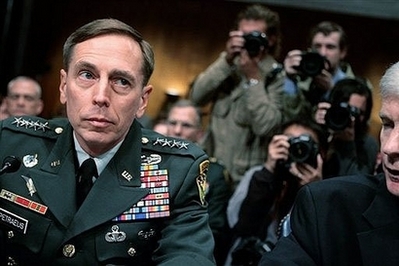Petraeus says no new buildup for Iraq
Updated: 2008-04-10 15:06
WASHINGTON - America's war commander in Iraq told Congress Wednesday he is unlikely to endorse any fresh buildup of troops even if security in the country deteriorates, signaling that the limits of the US military have been reached for now.
|
|
Gen. David Petraeus, closely questioned by lawmakers for a second day, described Iraq as a frail state still struggling to provide its own security. That volatile situation figured in his recommendation to President Bush that a gradual pullout of US troops be halted this summer -- a recommendation Bush is expected to embrace in a speech Thursday.
But Petraeus also spoke of the burden on US ground forces, and Bush will address that, too. In his speech at 11:30 am EDT, Bush will announce plans to cut the combat tours of active-duty soldiers from 15 months to 12 months. The reduced deployments will not apply -- at least initially -- to any soldiers currently serving in Iraq, unless conditions improve to the point that commanders believe some could go home early.
His resistance to the idea of any renewed increase of troops for Iraq reflects -- at least in part -- the reality that the rotation pool of some 1.3 million soldiers and Marines has been exhausted. Army soldiers in particular have faced repeated tours in Iraq and Afghanistan, and senior officers warn that the service's "strategic reserve" is at an all-time low.
Meanwhile, the chairman of the Joint Chiefs of Staff, Adm. Mike Mullen, says current troop commitments in Iraq make it impossible to send extra forces into Afghanistan.
Andrew Krepinevich, president of the independent Center for Strategic and Budgetary Assessments in Washington, noted that Petraeus' promise to the House Armed Services Committee was a limited one. The four-star general is expected to resign his command position at the end of the year.
While Democratic contenders Barack Obama and Hillary Rodham Clinton have promised voters they would start withdrawing troops if elected, Republican John McCain supported last year's troop increase and believes conditions on the ground should dictate force levels.
Still, Krepinevich said, it's easy to imagine that Army officials agreed to the 2007 buildup on the assumption that Petraeus would give troops a "breather" at some point. Every commander "rotates them out of the line every once in a while to get rested and refitted. Otherwise, you really do burn up the force," he said.
|
||
|
||
|
|
|
|








